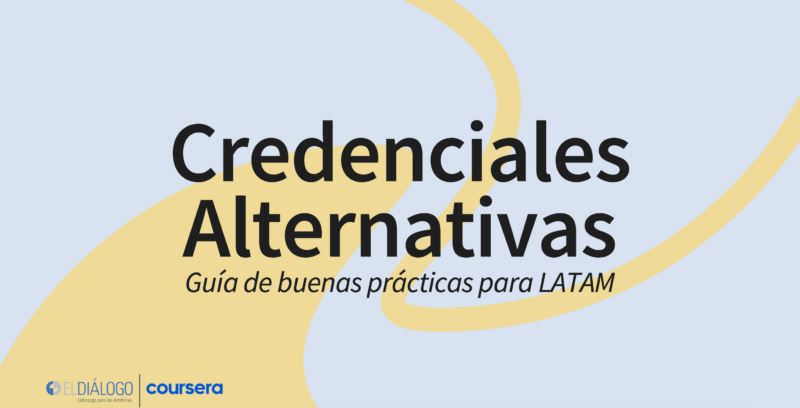
Latin America’s Productivity Challenge
There is a gap between the skills that the Latin American workforce offers and the skills that companies in the region demand.
This post is also available in: Español
Micro-credentials have the potential to promote social and economic mobility for individuals in and out of the labor market in Latin America and the Caribbean (LAC) through a cost-effective, relevant model adapted to changing industry needs. For institutions, the alternative credential approach can increase enrollment, especially of traditional and non-traditional students, improve institutional reputation and the quality of existing curricular offerings, and foster more and better partnerships with companies and key industry players.
Given the reported benefits, how do we promote quality micro-credential offerings and their effective adoption in Latin American and Caribbean institutions? This study presents a guide for higher education institutions (HEIs) and institutions with non-academic training functions. The guide aims to document the current adoption of alternative credentials, the main barriers and opportunities for institutions, and finally, offer recommendations and practical lessons for their implementation. This guide was first introduced during the online event The Future of Micro-Credentials in Latin America: Challenges and Opportunities, held in March 2024 (recording available).
The guide summarizes the motivations for adopting and offering alternative credentials in the five institutions included in the study, according to their characteristics and context: the Coalición Costarricense de Iniciativas de Desarrollo (CINDE) in Costa Rica, Instituto Nacional de Empleo y Formación Profesional (INEFOP) in Uruguay, Tecnológico de Monterrey (TEC) in Mexico, Corporación Universitaria Minuto De Dios (UNIMINUTO) in Colombia, and Laboratoria in Peru.
There is a gap between the skills that the Latin American workforce offers and the skills that companies in the region demand.
What are the main benefits and challenges of secondary technical and vocational education for Latin American countries?
Online competency-based education (OCBE) has emerged as a viable option to help reduce the skills gap in the Americas
 Photo of report cover
Photo of report cover

